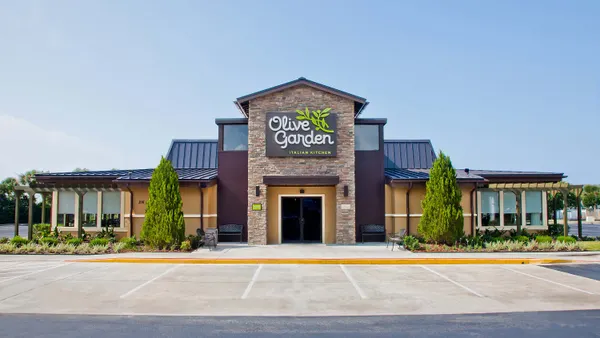Dive Brief:
- A class action lawsuit was filed on Thursday against Dos Toros — a taqueria concept with about 20 locations in New York, New Jersey and Chicago — alleging the chain deceptively claimed its pork and chicken products were "naturally" and "humanely" raised on store signage.
- According to the complaint, Dos Toros' pork and chicken suppliers raise animals in "unnatural and inhumane industrial facilities where animals have no access to the outdoors," and where they are "extremely confined." The complaint also alleges animals were subjected to abuse by Dos Toros' suppliers. The suit alleges workers beat pigs and boiled chickens alive, as outlined in inspection reports from the U.S. Department of Agriculture.
- Richman Law & Policy, the law firm representing the plaintiffs, claims such deceptive marketing tactics are done to appeal to American consumers, who "increasingly and consciously seek out, and will pay more" for animal products sourced from humane suppliers.
Dive Insight:
Companies have increased their focus on shifting their supply chain in recent years. Several chains — including Panera and Taco Bell — are moving toward cage-free eggs, for instance, while others have removed or reduced antibiotics from meat supply chains. Chipotle even suspended the sale of pork at hundreds of restaurants after discovering a supplier didn't meet its "humanely raised" standards.
State laws and ballot measures have led to animal welfare improvements in the industry with 14 states banning some or all forms of animal confinement.
The issue has contributed to an increase in lawsuits over "misleading food labels." According to the New York Times, 220 class action suits were filed against food and beverage companies in 2020 — a record high compared to 45 lawsuits 10 years ago. The increase is due in part to lack of oversight over claims such as "all natural."
People for the Ethical Treatment of Animals sued Whole Foods over its "humane meat" claims in 2015, while Chipotle faced a "naturally raised" meat lawsuit in 2013 and a non-GMO lawsuit in 2016. Panera faced a class action lawsuit over its "100% clean" claims in 2019.
Most of these suits were dismissed, according to the New York Times, but the increase in such suits and consumer sentiment indicate the issue will not disappear. Even investors have felt emboldened to pressure chains, as Carl Icahn did over McDonald's pork supply in February. Such pressure led Darden to agree to start sourcing pork products from suppliers in 2016 that do not use gestation crates, for instance.
Younger consumers also more conscious about what goes into their food and how it's supplied, so this pressure isn't going to go away, and legal action may increase over misleading menu claims. Data supports Richman Law & Policy's claims about consumer purchasing habits — 77% of consumers are concerned about animal welfare as it applies to their food, according to a survey from Technomic and the American Society for the Prevention of Cruelty to Animals, and they're willing to pay more for more humane options.











